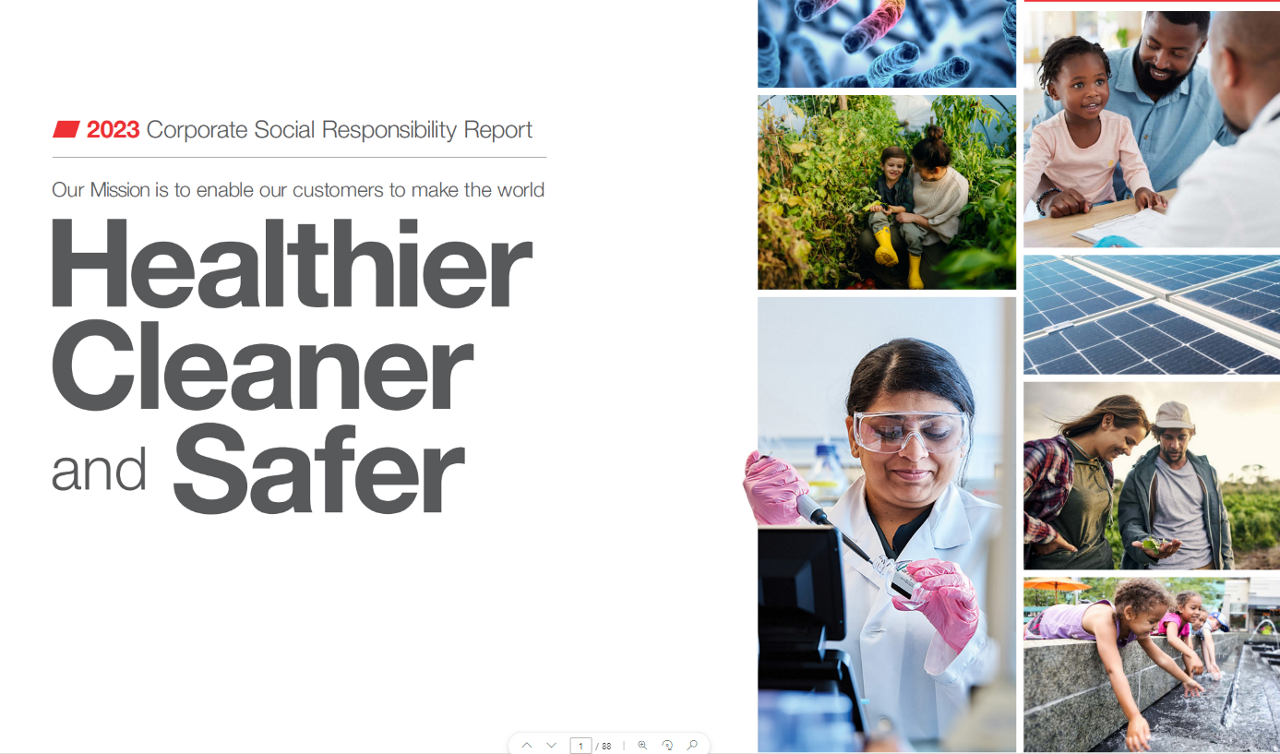As the world leader in serving science, we understand that we have a unique opportunity and responsibility to use our position to make a positive impact on society – not only by enabling our customers’ success, but also through our actions as a Company to make the world a better place. Our CSR approach is focused on four key pillars – Operations, Colleagues, Communities and Environment. This strategic framework allows us to effectively manage ESG priorities that are fundamental to our business, driving competitive differentiation, and creating sustainable value for all our stakeholders.
Our CSR strategy supports our long-term success as we continue to create a great place to work for our colleagues, provide high-quality products for our customers, deliver strong returns for our shareholders, make a difference in our communities and reduce our impact on the environment.
Reporting
In line with our commitment to transparency, we maintain a comprehensive library of recent disclosures on our Policies and Reports webpage.
Stakeholder engagement
We are committed to creating sustainable value for all our stakeholders.
Our robust stakeholder engagement program includes proactive outreach on a regular basis throughout the year to help us understand our stakeholders’ evolving interests and expectations as we build strong relationships and mutual understanding of the issues most relevant to the Company’s success. These interactions are invaluable and stakeholder input informs our CSR strategy, which is actively refreshed to identify opportunities to create value and minimize risk.
Priority assessment
Our CSR strategy is also informed by an annual priority assessment, a process to continually align our approach with the ESG matters most relevant to our business and our stakeholders. In 2020, we reported the results of our last in-depth priority assessment, completed with the support of an independent consulting firm. Following guidelines set forth by the Global Reporting Initiative (GRI) Standards (2021), the analysis prioritized six ESG topics for strategic action:
- Innovation
- Diversity and inclusion
- Climate change
- Product safety and quality
- Talent management
- Community engagement and development
On an annual basis, we conduct reviews to address evolving needs and expectations. These interim analyses monitor the global landscape using research, stakeholder feedback and a technology solution that analyzes the latest industry and market developments.

Sustainable finance
At Thermo Fisher, we embed our environmental, social and governance (ESG) priorities within the business to drive ownership and progress toward our commitments. Sustainable financing is part of our approach and helps advance initiatives that are fundamental to our Company and deliver positive social and environmental impacts.
Sustainability bond report
On November 18, 2021, we issued a €550.0 million sustainability bond in line with our Sustainable Financing Framework. We are pleased to report we have fully allocated the net proceeds of this bond.
Our Sustainability Bond Report 2022 details the allocation of proceeds and the impact of investments with the accompanying management attestation and auditor limited assurance.

